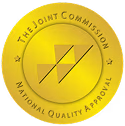When it comes to the question of addiction and anger management, it's like asking if the chicken came before the egg or vice versa. The answer depends on your situation.
If you suppress your emotions constantly, for example, you may build ongoing resentment and turn to drugs for comfort. Conversely, drug abuse can foster emotional tirades, especially if you can't satisfy your cravings.
Regardless of your plight, anger problems can hamper your recovery if left unresolved. Luckily, the best drug rehab clinics offer behavioral therapy for anger issues of all types.
Health officials will help you deal with stress. Plus, they will help you contend with past instances that intensified negative feelings.
This article will show you how anger affects addiction. Let's explore.
The Warning Signs
Everyone becomes angry, but you may need anger management if you exhibit the following symptoms:
- Insulting or berating others
- Engaging in violent behavior (i.e. physical contact or throwing objects)
- Breaking objects
- Engaging in reckless actions (i.e. Unhinged driving)
In other cases, you may be irritable and moody. The moodiness may be ongoing. Moreover, it can occur without any emotional trigger.
Also, you may have frayed relationships with friends or family members. Perhaps they stay away from you because of your anger issues.
Above all, you may consume drugs or alcohol to deal with your anger. Anger can be an addictive quality because the emotion releases endorphins.
When the endorphins wear off, you may deal with anxiety or depression. Therefore, you'll rely on drugs or alcohol to maintain the high.
Not all people dealing with management problems will turn to drugs or alcohol. However, seek drug rehab if you use substances to quell your anger.
Anger Leading to Addiction
Since many people crave a high after becoming angry, the anger itself can lead to addiction. Those who exhibit anger, or any form of aggressiveness, are more likely to develop alcohol or drug problems. Even if you don't engage in explosive fits of rage, you may still need anger management if you display low-key aggressions.
Types of Anger
To determine what type of anger applies to you, consider the following:
- Outright Aggression: This anger is overt and comes in the form of yelling, insulting, or hurting others.
- Passive Aggression: Examples of passive anger include giving people the silent treatment or suppressing emotions.
- Assertive Anger: Assertive anger means you'll express anger appropriately by discussing feelings and easing conflict.
Assertive anger is the ultimate goal. Passive aggression isn't as severe as open aggression, but it's still destructive.
By suppressing your anger, the rage will slowly build inside until you may exhibit outlandish behaviors. Regardless of the rage type, an anger management program will help you become more assertive.
Anger Can Impede Your Recovery
If you don't deal with your anger, it can cause you to relapse in the future. Anger is a whirlwind emotion that places a great deal of stress on your body. With stress comes the need to ease tensions with drugs or alcohol.
More importantly, anger can affect your physical health. For example, you're more likely to develop heart disease if you cannot control your anger.
Anger Could Indicate a Larger Problem
In other cases, anger is just a symptom instead of the cause. If you're dealing with mental health issues, your struggles can foster frustration and hopelessness, intensifying your anger in the process. The following mental health conditions can also cause irregular anger patterns:
- Anxiety
- Depression
- PTSD
- Personality disorders
- Bipolar disorder
The good news is that an addiction recovery program can treat mental health disorders and anger management problems.
Other Emotions Can Fuel Your Anger
You may not have anger issues now, but you could have problems if you don't know how to deal with other forms of emotional turmoil. Sadness, shame, and guilt can slowly build anger within you. These elements alone can cause you to relapse.
Then, you may display your anger in unhealthy ways. However, therapy can help you deal with all negative emotions. As a result, you can prevent negative factors that lead to anger management quandaries.
Anger Management and Trauma
Your anger could explain your addiction. In many cases, anger derives from trauma. For example, kids who underwent child abuse may struggle to deal with anger later in life. Additionally, your anger may grow worse if you grew up in a violent home or neighborhood.
Regardless, childhood trauma of any kind can heighten anger and addiction. Anger management therapy can help you deal with both problems.
Therapy Techniques
Anger management through a rehab clinic will teach:
- How to engage in various relaxation methods to calm you down
- How to approach problems that can cause frustration
- How to respond to emotional triggers constructively
When dealing with stress indicators, an anger management professional will recommend such relaxing activities as yoga or meditation. Further, you can immerse yourself in the arts such as music or painting.
Maintaining a journal is a useful mechanism as well. All of these activities will help you counter cravings and prevent a potential relapse.
Addiction and Anger Management
Addiction and anger management are inextricably linked because anger can nurture the addiction. You may also contend with mental health issues that can lead to emotional outbursts.
An anger management program can teach you how to be more assertive and deescalate conflict. Without anger management, unwieldy emotions can cause you to fall back into old habits. Want to learn how art therapy can help addicts? Click here to learn more.





.png)
